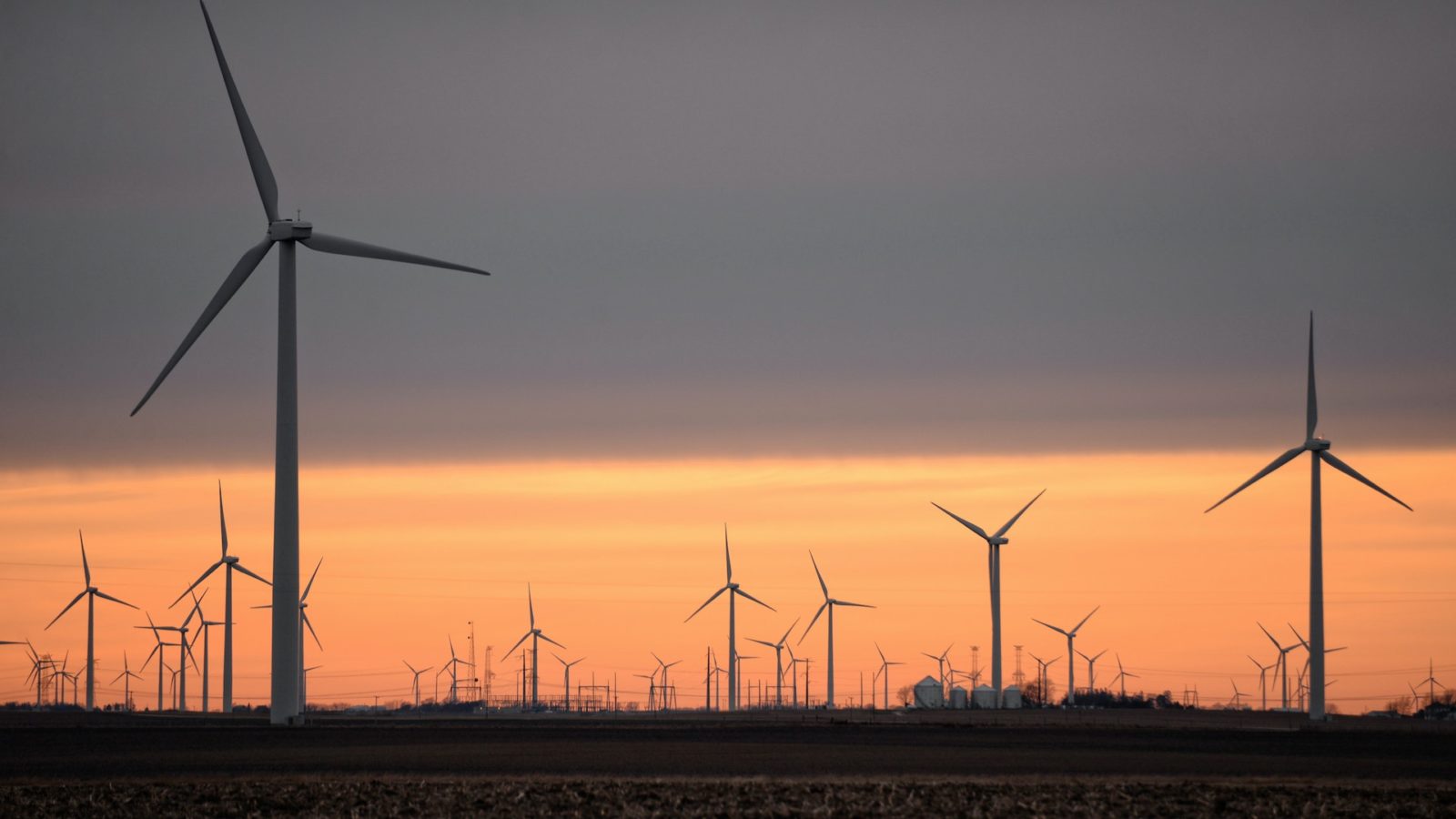In a recent victory for climate activists, Illinois passed the Climate and Equitable Jobs Act, known as CEJA, with bipartisan support. The bill, signed into law on September 15, 2021, outlines a bold plan to phase out fossil fuel use in the power sector by 2045, the first successful piece of legislation in the Midwest to do so.
The bill is applauded by environmental justice groups, community organizations, and climate advocates for its emphasis on equity and job creation, as the bill addresses the needs of communities most affected by the climate crisis and those impacted by the state’s transition to clean energy. Support for displaced workers, job creation in the clean energy industry focused on diversifying the workforce, and economic assistance for communities hit hardest by fossil fuel pollution are just a few of the initiatives included in CEJA. Importantly, channeling economic opportunities to BIPOC (Black, Indigenous, and People of Color) employees and businesses in the clean energy sector is an intentional response to the systemic barriers that have prevented BIPOC communities from benefiting from clean energy production under previous policies.
The passage of CEJA has been celebrated by policymakers and climate activists as a major step forward in the fight against the climate crisis. However, the implementation of these policies will be crucial to the success of CEJA. Activists hope this bill will serve as a model for other states to begin their transition to clean energy. Ultimately, that success depends on the diligence and cooperation of policymakers and energy industry leaders to follow through on the promise of the bill’s objectives.
The Climate and Equitable Jobs Act
Illinois’ sweeping energy legislation package puts the state on the path to 100 percent renewable energy by 2050, making it the first state in the Midwest to mandate the transition. The policy actions of the bill are centered on transitioning the state to renewable energy in the power sector by 2045. The bill was first introduced in 2019 after years of development by the Illinois Clean Jobs Coalition (ICJC) and feedback from community dialogues across the state. The ICJC consists of hundreds of organizations, ranging from environmental advocates to community leaders and faith-based organizations, and it played a major role in negotiating for CEJA initiatives.
The Climate and Equitable Jobs Act was preceded by the Future Energy Jobs Act (FEJA), which was passed in 2016 and mandated higher renewable energy goals along with the promise of 100 percent renewable energy by 2050. The bill focused on renewable energy generation and energy efficiency, with provisions to aid community solar projects and update the state’s renewable energy laws to spur investment and innovation. At the time, FEJA was seen as one of the most significant climate laws in Illinois history, but CEJA is now regarded as more comprehensive and significantly more focused on equity in the transition to clean energy. Of course, important groundwork was laid by FEJA, and it positioned the state to move toward achieving renewable energy goals that are now the focus of CEJA.
Currently, Illinois’ renewable energy production accounts for only seven to eight percent of their total energy production, and CEJA requirements would increase that to 40 percent by 2030. Illinois has the sixth-highest carbon emissions in the nation and ranks fourth in nationwide production of coal. To accomplish emission reductions goals and increase renewable energy capacity, the state’s fossil fuel plants are set to be shuttered by 2045 and the state will invest $580 million a year in renewable energy generation. Clearly, innovation will be essential in expanding the state’s clean energy portfolio, along with a real commitment to these bold energy targets.
Emphasis on Equity and Support for Communities
The equity measures included in this bill are fundamental to the purpose of CEJA. They are essential to securing a prosperous transition to a clean energy economy while growing the workforce. These provisions work alongside the decarbonization measures, rather than acting as two pieces of legislation that function separately. CEJA was purposefully designed to intertwine equity and climate policies and improve the success of reaching energy goals by focusing on community efforts. The bill will create thousands of jobs in the clean energy industry, focused on employing people of color and communities most impacted by pollution from coal-fired power plants — those who have also been historically underrepresented in the renewable energy industry. The goal is to not only transform Illinois’ energy industry, but also revitalize the renewable energy industry into one that reflects the diversity of the state.
Workforce training and development will play a major role in supporting an equitable transition to clean energy. The creation of 13 Clean Jobs Workforce Network Hubs throughout the state aims to assist traditionally underrepresented communities in the renewable energy industry through outreach, job training, and career development. The hubs will be community-based and give priority to those who have faced barriers to employment in the industry, through programs like the Energy Transition Navigators, Access and Barrier Reduction Program, and the Illinois Climate Works Pre-apprenticeship Program. These programs will ensure that the jobs created by CEJA will benefit BIPOC communities by mentoring job seekers and recruiting small businesses in the clean energy industry.
New labor standards are also set under CEJA, with an emphasis on expanding opportunities for Black and Brown workers in the clean energy industry. Utility-scale projects that develop clean energy will require project-labor agreements, which protect trade workers and communities from irresponsible contractors, and developers must submit diversity hiring reports to monitor the hiring of BIPOC workers and apprentices.
Key Equity and Energy Provisions
To achieve its ambitious clean energy goals, the bill centers on decarbonization and electrification, in addition to establishing job creation measures and protections for workers that will ensure a just transition. The key measures to aid this transition and support communities include:
- Invest $580 million in renewable energy, with the Illinois Power Agency required to reach 40 percent renewable production by 2030 and 50 percent by 2040.
- Require private electric utilities to achieve zero carbon emissions by 2030 and public utilities must reach zero carbon emissions by 2045. Owners of retired coal-fired plants are incentivized to convert the plants to renewable energy generation or energy storage facilities.
- Contribute $180 million annually to the newly created Energy Transition Assistance Fund to support equity programs and workforce development in BIPOC communities.
- Provide a $4,000 rebate for electric vehicles (EVs) along with 80 percent rebates for all EV charging station projects (45 percent of those must be in underserved communities) to reach one million electric vehicles on the road by 2030.
- Create a Green Bank to finance clean energy projects and provide low-interest loans for low-income communities and businesses.
- Hold utility companies accountable by reforming ethics rules to ensure profits are contingent upon achieving clean energy goals and establishing an independent monitor to ensure public utilities satisfy ethics requirements.
- Invest $80 million annually to provide workforce development programs to underserved and low-income communities and bring an additional $1.5 billion in private investments to the state’s renewable energy workforce development efforts.
- Increase funding for the community solar program, Solar for All, from $10 million to $50 million per year, which provides solar access to low-income residents.
- Develop a Displaced Workers Bill of Rights for workers of coal, nuclear, or fossil fuel plants that may be closed during the transition and establish a $40 million grant program for communities where coal or nuclear power plants have been closed.
Ensuring Successful Implementation of CEJA
With such ambitious goals to transition to 100 percent clean energy by 2050, accountability is paramount to ensuring that the legislation works for the people of Illinois. One major piece of this comes in the form of utility industry accountability measures, which require an increase in renewable energy production from the current eight percent to 40 percent by 2030. This is addressed by CEJA through the creation of a Public Utilities Ethics and Compliance Monitor, which is tasked with creating new ethics standards for public gas and electric utilities.
The bill also transforms how utility companies profit by shifting from formula rates, which allow utilities to increase profits by increasing their expenses, to performance-based rates. Now, utilities must achieve efficiency goals in order to increase profits and make energy bills more affordable. Additional oversight from members of the public will occur through direct input at utility planning meetings and increased transparency will allow utility regulators to better monitor utility performance and spending.
Environmental justice advocates and organizations believe there is an opportunity to address the burdens from fossil fuel pollution and toxic dumping that have disproportionately affected BIPOC communities in Illinois. The way that equity measures have been woven into the energy transition will not only ensure that the toxic pollution BIPOC communities have faced will be addressed, but also that these communities will play a role in securing a cleaner future for everyone.
John Delurey, Senior Regional Director at Vote Solar, served on the steering committee of the ICJC and spoke with Climate XChange about the collaborative process and efforts to weave equity provisions into the text of the bill. Delurey believes that “the overall intent is to compensate for decades of redlining and disinvestment.” He is most excited about the initiatives to develop two non-governmental Green Banks that will support grants and loans for BIPOC contractors hoping to expand their businesses. These initiatives are “laser focused on reducing barriers for contractors and communities to tap into the clean energy future.”
How Can CEJA Be Replicated in Other States?
The grassroots coalition-building of the ICJC was instrumental in gaining widespread support for CEJA initiatives. Delurey described the process of building consensus across the various participating groups and how the coalition was successful: “We established that we were going to build enough power as the environmental/climate/justice organizations to be able to kill any bill that didn’t adequately address community concerns. We set off to do two things. One was building political power and meeting directly with legislators, and the other was doing deep seated community engagement and listening sessions.”
The coalition will remain involved beyond getting the legislation passed, says Delurey. “There’s going to be a process of engagement by stakeholders to weigh in and share our expertise.” They hope this will ensure that policies are implemented as intended, and Delurey is confident that the coalition will play a crucial role in securing successful implementation.
Ultimately, Delurey believes that CEJA can serve as a blueprint for other states to transition toward green economies. “There’s no way that we could have done what we managed to do in Illinois if not for that process of stakeholder engagement,” he says. Building relationships across community groups was key to successfully passing such a groundbreaking clean and equitable energy bill. “It was clear that we shouldn’t repeat the mistakes of our inequitable fossil fuel past in designing the clean energy future,” Delurey explained.










